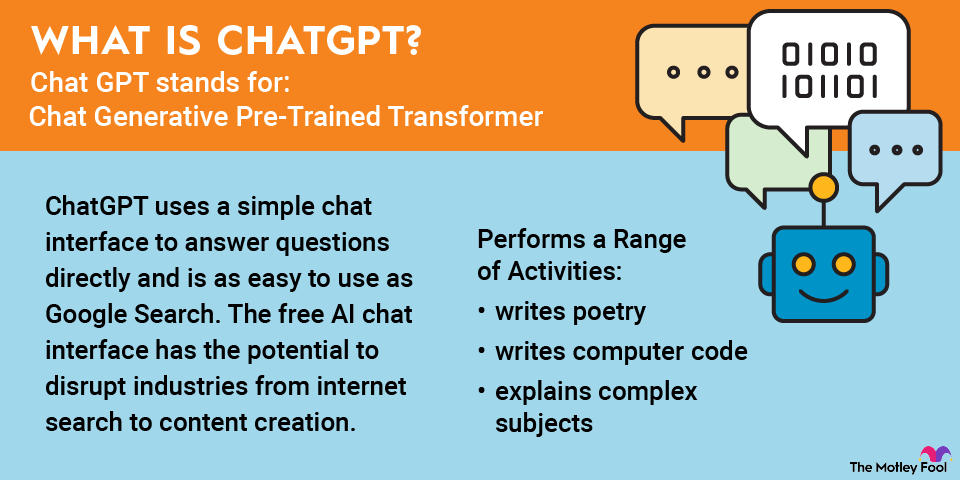If you're wondering who owns ChatGPT, you're in the right place. The transformative artificial intelligence (AI) chatbot has launched a new era of technology. Big tech companies, start-ups, and others are racing to harness the power of generative AI, first unveiled by ChatGPT.
Artificial Intelligence
ChatGPT was developed by OpenAI, an organization founded with the mission of ensuring that artificial general intelligence (AGI) benefits all of humanity. It was first made available to the public in November 2022.

However, the earliest version of the technology underpinning it, GPT-1 (an acronym for generative pre-trained transformer), was introduced in June 2018 and has evolved and improved over the years. OpenAI has also developed other generative AI products, but the company is best known for ChatGPT.
Who is the owner of ChatGPT?
ChatGPT is owned by OpenAI, which has a complicated organizational structure. The start-up was founded as a nonprofit but discovered the model was unsustainable for funding its research. In 2019, it created OpenAI LP, a "capped-profit" company it described as a hybrid between a for-profit and nonprofit company.
At the time, the company also said that running large-scale AI systems required significant computational power, and it realized it needed "billions of dollars to invest in the upcoming years into large-scale cloud comput[ing], attracting and retaining talented people, and building AI supercomputers."
That was the same year Microsoft (MSFT +0.00%) first invested in the company. Microsoft has been its primary benefactor since then, investing an estimated $13 billion in OpenAI, with a percentage of its investment coming in the form of computing power from its Azure cloud computing service.
However, the relationship between Microsoft and OpenAI is also complicated. In a statement in December 2023, Microsoft said it doesn't own any portion of OpenAI and is just entitled to a share of profits.
Profit
Equity
5. YCombinator
YCombinator, the Silicon Valley incubator, was the first institutional investor to invest in OpenAI, doing so in 2016, according to Crunchbase. Before running OpenAI, Altman was the CEO of YCombinator.
6. Khosla Ventures
Khosla Ventures was another of the first VC firms to invest in OpenAI, putting in $50 million in 2019 and taking a 5% stake. Principal Vinod Khosla said there was no good way to do due diligence on the company, but he had confidence that AI would be a significant technology. He's been proven right. The stake is now worth more than $1 billion.
7. Tiger Global
VC firm Tiger Global first invested in OpenAI in 2021 in a funding round with several other VC firms. Tiger Global was also one of several firms to push back against OpenAI when the board fired Sam Altman for a few days, only to bring him back after an employee and investor uproar.
8. Andreessen Horowitz
Andreessen Horowitz, one of the best-known Silicon Valley VC firms, participated in OpenAI's funding round in April 2023. However, co-founder Marc Andreessen criticized OpenAI's defense capabilities, saying its security protocol was "Swiss cheese." Andreessen Horowitz is also in the process of raising $6 billion to invest in AI, showing it's betting big on the new technology.
9. Sequoia Capital
Sequoia first invested in OpenAI in 2021 and is also focused on AI, with 60% of its investments in AI companies in 2023, up 15% from 2022. It has invested in a number of other AI companies, like Collaborative Robotics.
10. Thrive Capital
VC firm Thrive Capital led the September 2024 $6.6 billion investment round with a $1.3 billion investment of its own. Thrive also has the option to invest as much as $1 billion in OpenAI at the same valuation. Founded by Joshua Kushner, Thrive is known for successful early-stage investments in tech companies like Meta Platforms' (META +0.10%) Instagram, Spotify (SPOT -0.13%), and Stripe.
11. Nvidia
According to reports, Nvidia invested around $100 million in OpenAI's latest funding round. It's not a surprise that the chip giant would invest in OpenAI as the success of each company is very much connected.
Nvidia stock soared shortly after the launch of OpenAI's ChatGPT, which set off a boom in generative AI. Looking ahead, Nvidia's success makes OpenAI's success more likely, and OpenAI's success makes Nvidia's success more likely.
12. SoftBank
The famed tech investment firm run by Masayoshi Son invested $500 million in the September 2024 funding round. SoftBank followed that up with a tender offer of $1.5 billion, offering to buy that amount from OpenAI employees who wanted to sell their shares.
SoftBank figures to be an OpenAI investor since it's the majority shareholder of Arm Holdings (ARM +0.54%), a semiconductor company with a significant stake in AI, and it's a prolific investor in tech start-ups.
13. Ark Invest
Ark Invest, the high-profile tech-focused investment manager run by Cathie Wood, is best known for investing in publicly traded companies. However, it also runs a venture fund, Ark Venture, which invested $250 million in OpenAI in the September 2024 funding round. Given its focus on disruptive companies, it's unsurprising that Ark Invest would invest in OpenAI.
Who is on the board of directors?
As of Jan. 26, 2025, the OpenAI board had 10 members.
1. Bret Taylor
Bret Taylor, former co-CEO of Salesforce (CRM -0.60%), is the chair of the OpenAI board. Taylor was named chair in an upheaval that took place after the previous board briefly ousted Sam Altman as CEO of OpenAI in November 2023.
2. Larry Summers
Larry Summers, the former Treasury secretary and former president of Harvard University, joined OpenAI's board at the same time as Taylor after the kerfuffle over Altman's temporary departure.
3. Adam D'Angelo
D'Angelo joined the OpenAI board in 2018. He was an advisor and investor in Instagram before it was acquired by Meta Platforms in 2012. He is the only member of the board of directors to remain from before Altman was voted out. D'Angelo was one of the members who voted to oust Altman.
4. Sue Desmond-Hellmann
Sue Desmond-Hellmann joined the board in March of 2024. She was formerly CEO of the Bill and Melinda Gates Foundation and a physician serving on the boards of Pfizer (PFE -0.20%) and the President's Council of Advisors on Science and Technology.

If you are a high-net-worth individual, you may be able to invest directly in OpenAI through a VC firm. However, you will need to be an accredited investor. Due to its unique corporate structure, OpenAI is unlikely to go public anytime soon. Yet, the VC firms that have invested in it will eventually want an exit, either through an acquisition or an initial public offering (IPO).
FAQ
About the Author
Randi Zuckerberg, a former director of market development and spokeswoman for Facebook and sister to Meta Platforms CEO Mark Zuckerberg, is a member of The Motley Fool's board of directors. Jeremy Bowman has positions in Meta Platforms, PayPal, and Shopify. The Motley Fool has positions in and recommends Meta Platforms, Microsoft, Palantir Technologies, PayPal, Pfizer, Salesforce, Shopify, and Tesla. The Motley Fool recommends the following options: long January 2026 $395 calls on Microsoft, short January 2026 $405 calls on Microsoft, and short June 2024 $67.50 calls on PayPal. The Motley Fool has a disclosure policy.



















